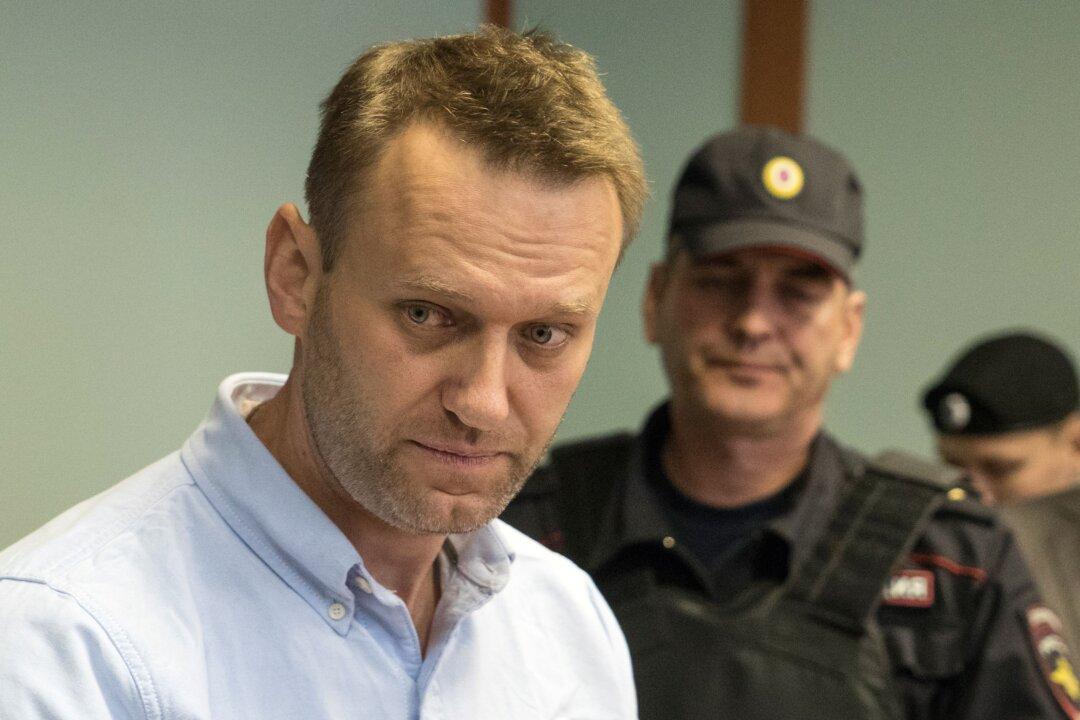The Russian government on Tuesday added the jailed Kremlin critic, Alexei Navalny, along with several of his top allies to an official list of people considered “terrorists or extremists.”
Rosfinmonitoring, the country’s state financial monitoring service, updated its “terrorist” listing on Jan. 25, with Navalny and some members of his team—including top aides Lyubov Sobol and Georgy Alburov—added to the registry.





